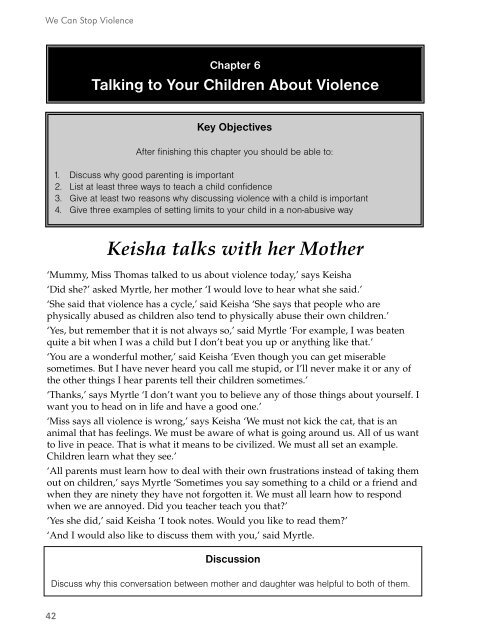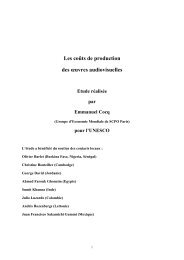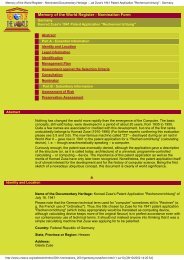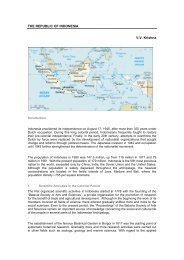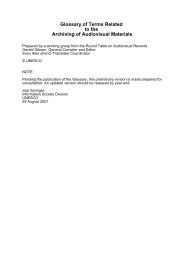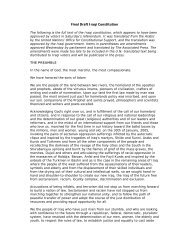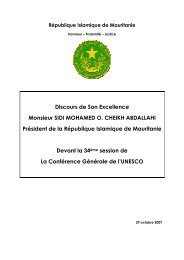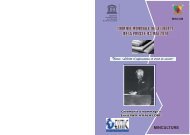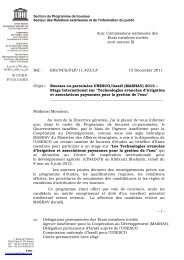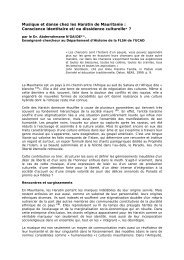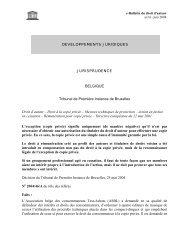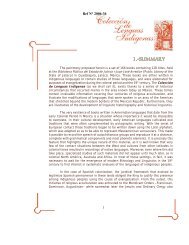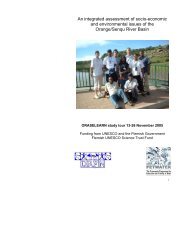Stop Violence workbook 1 - Unesco
Stop Violence workbook 1 - Unesco
Stop Violence workbook 1 - Unesco
Create successful ePaper yourself
Turn your PDF publications into a flip-book with our unique Google optimized e-Paper software.
We Can <strong>Stop</strong> <strong>Violence</strong><br />
Chapter 6<br />
Talking to Your Children About <strong>Violence</strong><br />
Key Objectives<br />
After finishing this chapter you should be able to:<br />
1. Discuss why good parenting is important<br />
2. List at least three ways to teach a child confidence<br />
3. Give at least two reasons why discussing violence with a child is important<br />
4. Give three examples of setting limits to your child in a non-abusive way<br />
Keisha talks with her Mother<br />
‘Mummy, Miss Thomas talked to us about violence today,’ says Keisha<br />
‘Did she?’ asked Myrtle, her mother ‘I would love to hear what she said.’<br />
‘She said that violence has a cycle,’ said Keisha ‘She says that people who are<br />
physically abused as children also tend to physically abuse their own children.’<br />
‘Yes, but remember that it is not always so,’ said Myrtle ‘For example, I was beaten<br />
quite a bit when I was a child but I don’t beat you up or anything like that.’<br />
‘You are a wonderful mother,’ said Keisha ‘Even though you can get miserable<br />
sometimes. But I have never heard you call me stupid, or I’ll never make it or any of<br />
the other things I hear parents tell their children sometimes.’<br />
‘Thanks,’ says Myrtle ‘I don’t want you to believe any of those things about yourself. I<br />
want you to head on in life and have a good one.’<br />
‘Miss says all violence is wrong,’ says Keisha ‘We must not kick the cat, that is an<br />
animal that has feelings. We must be aware of what is going around us. All of us want<br />
to live in peace. That is what it means to be civilized. We must all set an example.<br />
Children learn what they see.’<br />
‘All parents must learn how to deal with their own frustrations instead of taking them<br />
out on children,’ says Myrtle ‘Sometimes you say something to a child or a friend and<br />
when they are ninety they have not forgotten it. We must all learn how to respond<br />
when we are annoyed. Did you teacher teach you that?’<br />
‘Yes she did,’ said Keisha ‘I took notes. Would you like to read them?’<br />
‘And I would also like to discuss them with you,’ said Myrtle.<br />
Discussion<br />
Discuss why this conversation between mother and daughter was helpful to both of them.<br />
42


